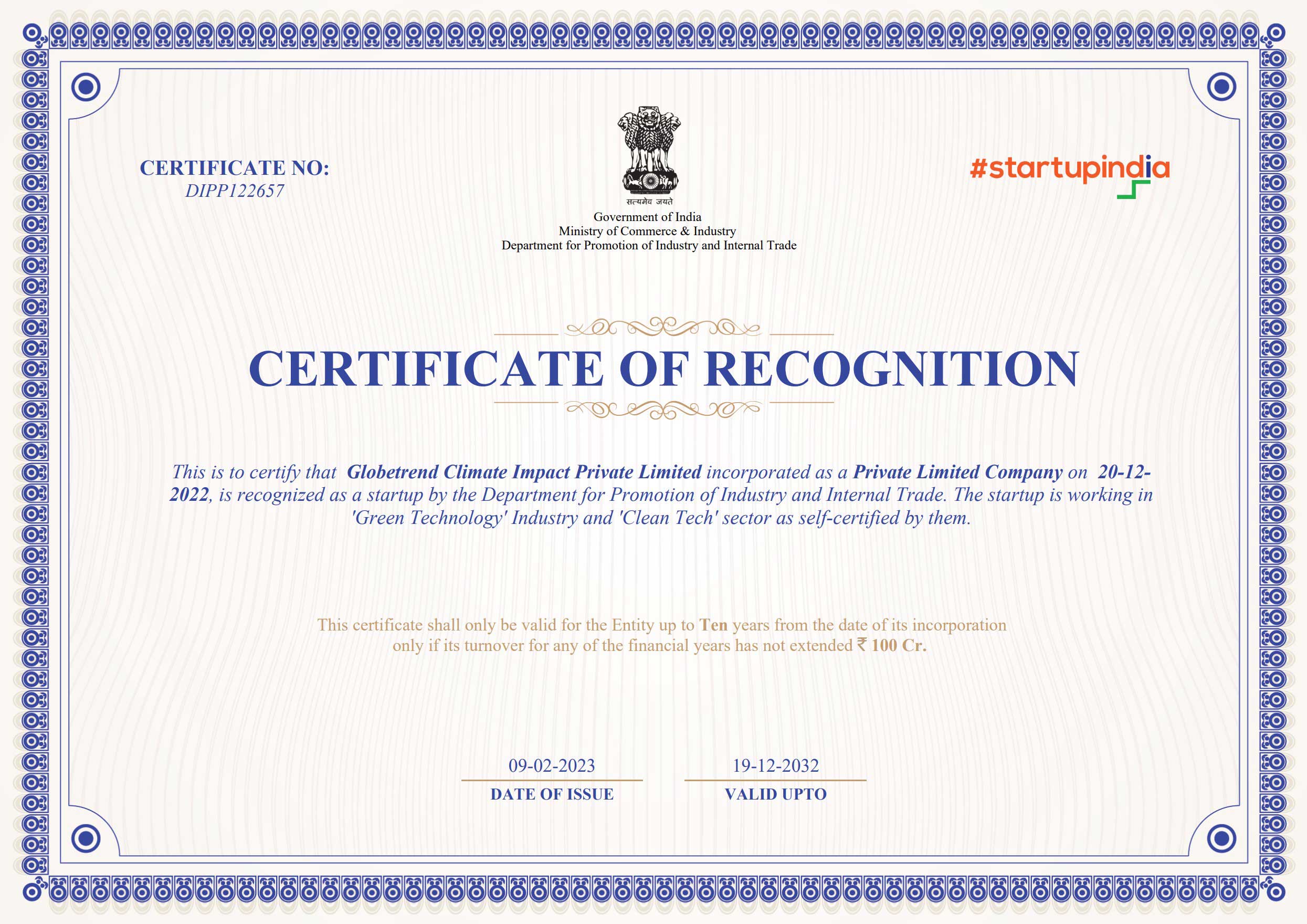
#1 SEBI recognised ESG Rating/ Score Provider Agency in India
(AI Powered)
Environment, Social, and Governance (ESG) rating providers play a crucial role in assessing the sustainability and ethical practices of companies. These ratings help investors, stakeholders, and the public make informed decisions by considering the environmental impact, social responsibility, and governance practices of businesses. ESG factors have gained significant importance in the corporate world as investors increasingly recognize the importance of responsible and sustainable business practices.
In India, the emergence of ESG rating providers has been driven by a growing awareness of sustainable practices and responsible investing. Investors, including institutional players, are placing greater emphasis on companies' ESG performance to manage risks and ensure long-term value creation.
The Securities and Exchange Board of India (SEBI), the regulatory authority overseeing the securities market in India, has recognized the importance of ESG considerations. SEBI has issued guidelines and regulations to promote ESG disclosures and reporting by listed companies. The SEBI (Credit Rating Agencies) (Amendment) Regulations, 2023, include provisions related to the disclosure of ESG-related information. Additionally, SEBI has issued a Master Circular on Corporate Governance, which emphasizes the importance of ESG factors in the governance framework of listed companies.
These regulatory initiatives aim to encourage companies to adopt sustainable business practices, enhance transparency, and provide investors with the necessary information to make informed decisions aligned with ESG considerations. The integration of ESG factors into the regulatory framework reflects the global trend towards responsible investing and sustainable corporate practices.
AI Powered
Keeping pace with technology, we decided to integrate AI into our ESG business processes.
We use AI for Expert Insights
We use AI technology to enhance the way we approach ESG ratings and reporting. Our AI-driven tools simplify the report-making process, providing real-time insights and personalized solutions that support informed decision-making. Our approach enables companies and investors to navigate the changing landscape of sustainability with greater ease and efficiency.

Use Cases
Investor Decision-Making: ESG ratings provide investors with additional insights beyond traditional financial metrics. Investors can use these ratings to evaluate a company's environmental, social, and governance practices, helping them make informed decisions that align with their values and long-term sustainability goals.
Risk Mitigation: Companies with strong ESG performance are often better equipped to manage and mitigate various risks associated with environmental and social issues. ESG ratings can be used by investors and stakeholders to assess the resilience of a business in the face of challenges such as climate change, supply chain disruptions, or labor issues.
Stakeholder Engagement: ESG ratings facilitate meaningful stakeholder engagement by providing a standardized framework to assess a company's impact on the environment, society, and governance. Companies can use these ratings to engage with shareholders, customers, employees, and other stakeholders, demonstrating their commitment to responsible business practices.
Consumer Decision-Making: Consumers are increasingly conscious of the social and environmental impact of the products and services they choose. ESG ratings can serve as a valuable tool for consumers to make informed purchasing decisions aligned with their ethical values. Companies with high ESG ratings may attract environmentally and socially conscious consumers.
Contributing to a Sustainable Economy: By considering ESG factors, investors and businesses can play a role in fostering a more sustainable and ethical global economy. Supporting companies with strong ESG practices encourages a shift towards responsible business behavior, contributing to long-term profitability and the overall well-being of the planet and society.
GCI Operating Model
We follow an “Issuer Pays” model wherein we enter into a contract with a company and offer ESG Rating services in exchange of a fee agreed upon by both parties (This is in accordance with SEBI regulations).
Scope/ boundary of companies
Our methodology has been designed in specific context to Indian markets and incorporates Environmental, Social and Governance indicators which are relevant as per the Indian laws and regulations such as Business Responsibility & Sustainability Reporting and Indian Companies Act 2013. Hence, the scope of the ESG Ratings provided by us are limited to companies operating in the Indian markets.

#SEBI Accredited Independent Reviewer/ Certifier for Social Bonds & Sustainability-linked bonds in India
In response to the growing significance of sustainable finance, the Securities and Exchange Board of India (SEBI) has introduced a regulatory framework to ensure greater transparency and credibility in ESG-labelled debt instruments. Through its recent circular on ESG-debt securities SEBI/HO/DDHS/DDHS-POD-1/P/CIR/2025/84, SEBI has formally recognized the role of ESG Rating Providers as Independent Reviewers/ Certifiers in assessing alignment with globally accepted standards.
As a SEBI-accredited Independent Reviewer/ Certifier, we provide objective evaluations for Social Bonds and Sustainability-linked Bonds. Our services support issuers in demonstrating regulatory compliance, mitigating greenwashing risks and enhancing investor confidence through globally recognized standards (such as ICMA) across the bond lifecycle.
ESG Services
- Materiality Assessment
- ESG Assessment & Due- Diligence
- ESG Reporting & Disclosures
- ESG/Sustainability Strategy & Roadmap
- Business Responsibility and Sustainability Reporting (BRSR)
- Assurance Services
Climate Change
- Carbon Footprint Assessment (GHG)
- Decarbonisation Strategy
- Life Cycle Assessment
- GHG Inventory Framework
- Emission Reduction Roadmap
- CDP/ECOVADIS Disclosure Submission
- Carbon Credits & Plastic Credits
Environmental and Social Audit
- Energy Audit
- Environmental Audit
- Social Audit
Green Advisory Services
- Nature Based Solutions
- Green Investment Consultancy
- Green Building Consultancy
Testimonials
We had the pleasure of working with GlobeTrend Climate Impact Pvt. Ltd. on our recent carbon footprint assessment, and the experience was very good. GlobeTrend Climate Impact Pvt. Ltd. delivered a detailed report, and their expertise was evident in every stage of the process, from data collection to final analysis. We highly recommend GlobeTrend Climate Impact Pvt. Ltd. for any organization seeking comprehensive carbon footprint and related services.
Sheetal Wader
(General Manager)
ASTRAIA Certification India Pvt. Ltd.
We are Pleased to recommend GlobeTrend Climate Impact Pvt.Ltd. for their exceptional support in our ESG reporting efforts. Collaborating with them has beena truly rewarding experience.
As this was our firsttime engaging in ESG reporting, we discovered GlobeTrend Climate Impact througha random internet search. Afterjusta few meetings on Google Meet, We felt confident in partnering with them for our ESG reporting project.
From the outset, GlobeTrend demonstrated deep expertise in environmental, social, and governance practices. Their team was instrumental in navigating the complexities of ESG reporting, helping us not only meet compliance requirements but also enhance our overall sustainability strategy. GlobeTrend's thorough analysis and actionable insights enabled us to identify key areas for improvement and effectively communicate our sustainability commitment to our stake holders.
The professionalism and dedication of the GlobeTrend team made the entire process smooth and engaging. Their collaborative approach and meticulous attention to detail were invaluable.I highly recommend GlobeTrend Climate Impact Pvt. Ltd. to any organizafion looking to strengthen their ESG reporting and sustainability practices. They successfully completed our project within the defined timeline. Thank you, GlobeTrend Climate Impact Pvt. Ltd., for your outstanding support!


